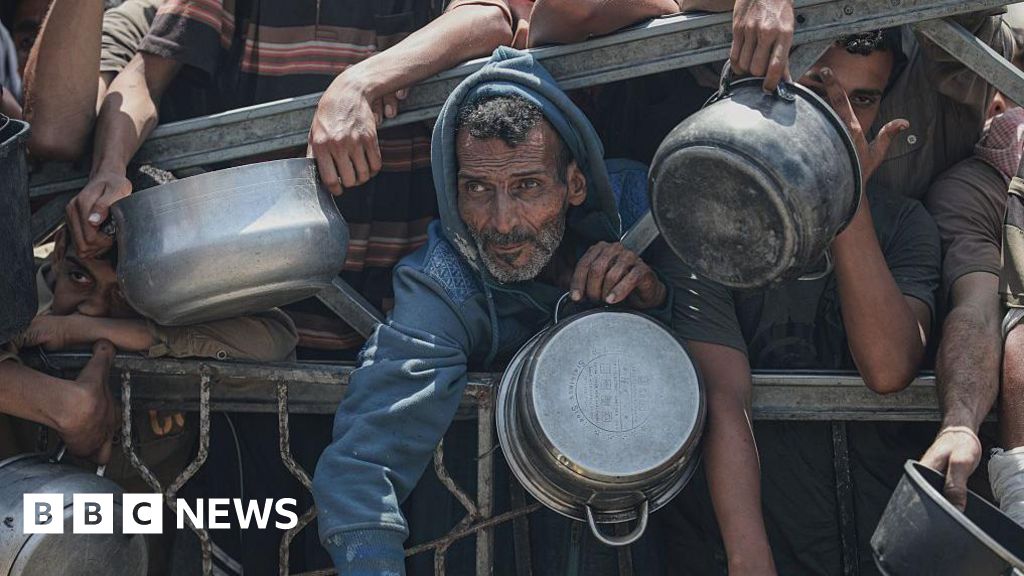Understanding Famine: Factors, Implications, and Aid

Introduction
The United Nations has declared a state of famine in Gaza, sparking concerns about the well-being of the population. This announcement is not made lightly and requires a thorough evaluation of the situation. To better understand the gravity of this declaration, let's explore what factors are taken into account before making such a pronouncement.
Factors Considered
When determining if an area is experiencing famine, organizations like the UN use complex measures to assess the severity of the situation. These include analyzing food availability, access to food, and the nutritional status of the population. For a famine to be declared, at least 20% of the population must have limited access to food, and more than 30% must suffer from malnutrition.
Other factors, such as conflict, natural disasters, and political instability, can also contribute to a famine. In the case of Gaza, the ongoing conflict and blockade by Israel have greatly affected the availability and distribution of food, making the situation even more dire.
Implications of a Famine Declaration
A famine declaration is not just a label, but a call to action. It serves as a signal for immediate aid and intervention from the international community. This can include the delivery of food, medical supplies, and other forms of assistance to help alleviate the crisis. A famine declaration also helps raise awareness and brings attention to the root causes
About the Organizations Mentioned
United Nations
The United Nations (UN) is a pivotal international organization established in 1945, following the devastation of World War II, with the primary goal of maintaining global peace and security, fostering international cooperation, and promoting social progress. The UN Charter, signed by 51 founding member states, including the United States, the United Kingdom, China, and the Soviet Union, laid the foundation for this ambitious endeavor[1][3]. ## History and Structure The UN was born out of the failures of its predecessor, the League of Nations, which failed to prevent World War II. Key planning meetings, such as the Dumbarton Oaks Conference in 1944, defined the UN's structure, which includes the General Assembly, the Security Council, the Economic and Social Council, the Trusteeship Council, the International Court of Justice, and the Secretariat[1][6]. The Security Council, with five permanent members (the United States, China, France, Russia, and the United Kingdom), holds significant influence due to its veto power[2]. ## Key Achievements Over the years, the UN has played a crucial role in conflict resolution, human rights advocacy, and sustainable development. Notable achievements include the establishment of the Universal Declaration of Human Rights in 1948 and the implementation of numerous peacekeeping missions worldwide[3][4]. The UN has also been instrumental in addressing global challenges such as climate change and pandemics through its various programs and agencies. ## Current Status Today, the UN comprises 193 member states, with its most recent addition being South Sudan in 2011[5]. The organization continues to evolve, addressing emerging issues like digital governance and cybersecurity. Despite challenges, the UN remains a cornerstone of international diplomacy and cooperation. ## Notable Aspects The UN's work is not limited to politics; it also impacts business and technology through initiatives that promote sustainable development and digital inclusion. Its role in setting global standards and fostering international cooperation makes it a significant player in shaping the
Israel
Israel is a highly developed democratic country in West Asia, known for its advanced free-market economy and significant contributions to global business and technology sectors. Established in 1948, Israel has grown into a regional powerhouse with a population of approximately 9.5 million as of 2025. It is the only country with a Jewish majority population and operates under a parliamentary democracy with strong political rights and civil liberties[2][5]. Israel's economy is among the most sophisticated in the Middle East, ranked 25th globally by nominal GDP according to the IMF in 2025. It boasts the second-largest number of startups worldwide, only behind the United States, and the third-largest number of companies listed on NASDAQ after the U.S. and China. This vibrant tech ecosystem attracts major multinational corporations such as Intel, Microsoft, Apple, IBM, Google, and Facebook, all of which have established research and development centers in Israel, often marking their first overseas R&D presence there[1]. The country’s main economic drivers include high-tech industries, industrial manufacturing, and diamond cutting and polishing, with the diamond sector accounting for 21% of exports in 2017[1]. Israel’s technological innovation extends to energy, with recent discoveries of natural gas reserves and a growing solar energy industry aiming to reduce dependency on imports[1]. Despite its small size, Israel's infrastructure rivals developed nations, supported by a sophisticated welfare state and a powerful military known for advanced capabilities, including nuclear weapons[1]. Regionally, Israel faces ongoing geopolitical instability and conflict, which influence its security policies and international relations. Internal and external tensions persist, particularly regarding the Palestinian territories, impacting both domestic and foreign policy dynamics[3][4]. Public opinion within Israel reflects concerns about international respect and peace prospects[6]. Overall, Israel stands out as a dynamic hub of innovation, economic resilience, and geopolitical significance, making it a critical player in global business and technology news.














